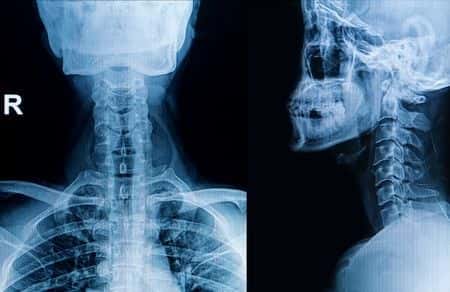This case involves a male patient, located in West Virginia, who had a past medical history of Cervical myelopathy and multilevel cervical radiculopathy which was suspected to be caused by cervical cord compression. He was recommended for surgery and was taken off his anticoagulants in preparation. The patient underwent a decompressing cervical laminectomy. A hemovac drain was placed in the epidural space. The next day the patient had regained some strength and was sitting up. His anticoagulants (Lovenox) were restarted. The patient’s hemovac drain was removed. Three-days later the patient was walking and suffered a sudden loss of sensation in all extremities. The patient had acute respiratory failure and a Code Blue was initiated. He was intubated and transferred to ICU at which point the records state that he was quadriplegic. An MRI of the cervical spine was performed that evening which revealed: “Interval laminectomies from C3-C7 since prior MRI with posterior paraspinous hematoma at midline extending along these levels. STAT CALL, CRITICAL FINDING.” Two-hours later the patient was taken to the OR to evacuate the spinal epidural hematoma. Ten-hours had elapsed since the patient had first showed signs of a neurological complication. Post-operatively, the patient had no movements from the neck down and required mechanical ventilation.
Question(s) For Expert Witness
1. How often do you treat patients with this presentation?
2. Have you ever had a patient develop this outcome?
3. What is the standard management for these patients?
4. Was the use of Lovenox in this setting appropriate?
5. Could the timing of the intervention over 10 hours from onset have contributed to the paralysis?
Expert Witness Response E-009297
This case fits my specific area of expertise very well. I treat patients with this presentation very often. My practice is primarily involved with cervical spine surgery, and I have a great deal of experience with cervical myelopathy and radiculopathy. The timing of resuming anticoagulation depends on the risks of being off anticoagulation -- I determine the risk/benefit of time off of anticoagulation based on the specific reason for anticoagulation (mechanical heart valve, atrial fibrillation, carotid stenosis, coronary artery disease, etc). The timing of the intervention could possibly have contributed to the paralysis, depending on what was happening with the patient's condition in those 10 hours.
About the author
Michael Morgenstern
Michael is Senior Vice President of Marketing at The Expert Institute. Michael oversees every aspect of The Expert Institute’s marketing strategy including SEO, PPC, marketing automation, email marketing, content development, analytics, and branding.



